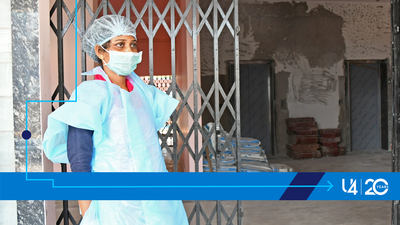Journal Article
| Mar 2024
Relational harm: on the divisive effects of global health volunteering at a hospital in rural Zambia
Drawing on ethnographic research at a hospital in rural Zambia, I show how the presence of white Christian medical volunteers from the United States damaged relations between local health workers and patients. Working from a position of economic and racial privilege, medical volunteers received praise from many patients and residents. However, these positive attitudes incited resentment among many Zambian health workers who felt that their own efforts and expertise were being undervalued or ignored. Focusing on these disrupted relationships, I argue that it is crucial to understand how global health volunteering can produce enduring forms of “relational harm”.




